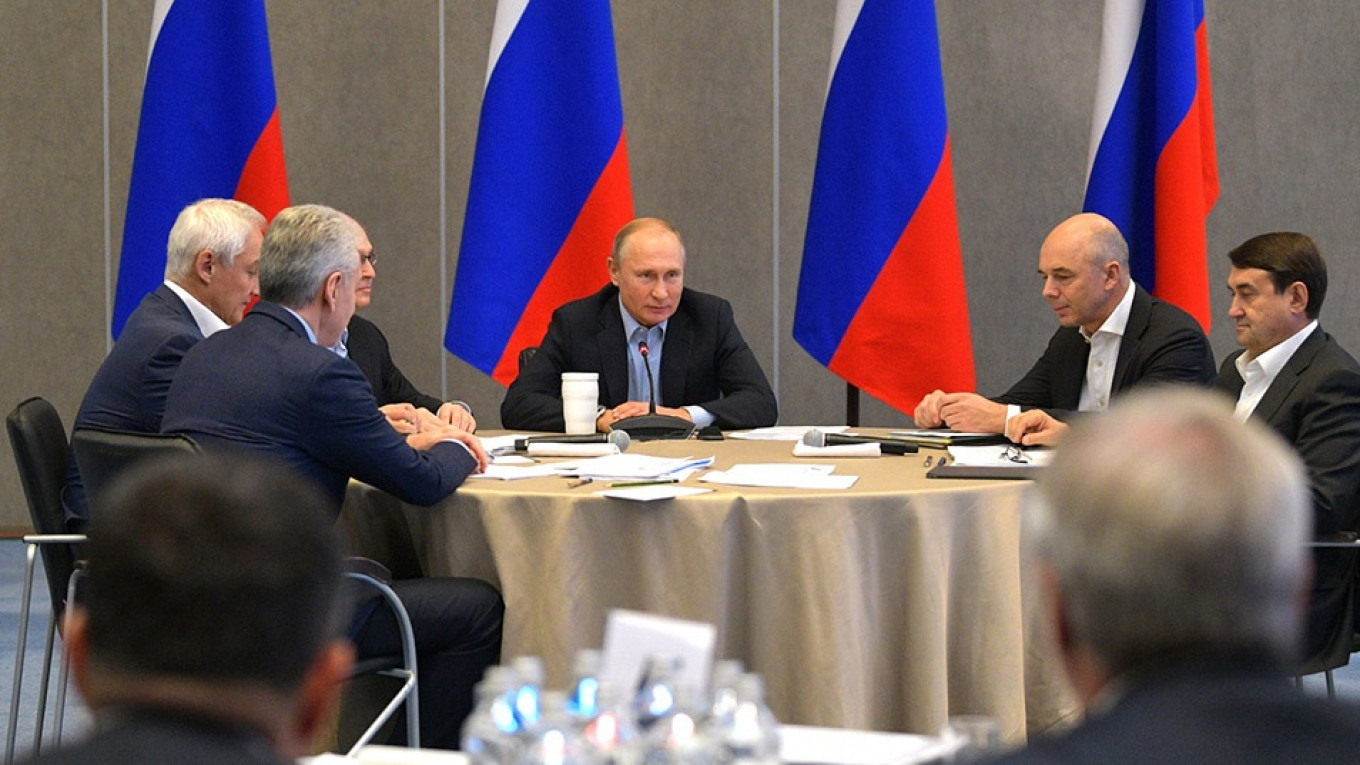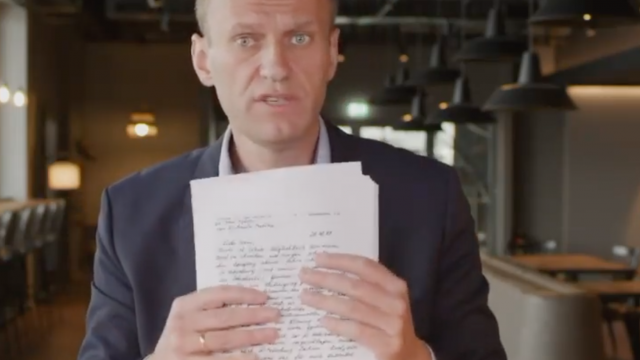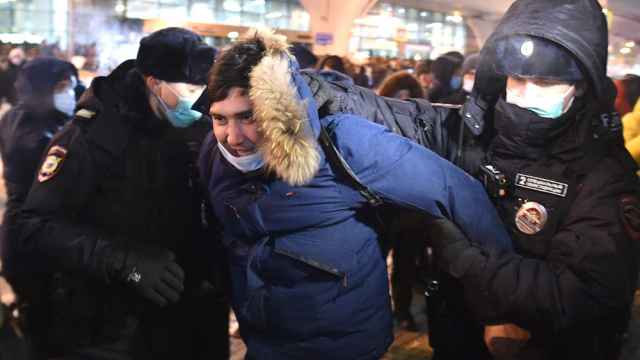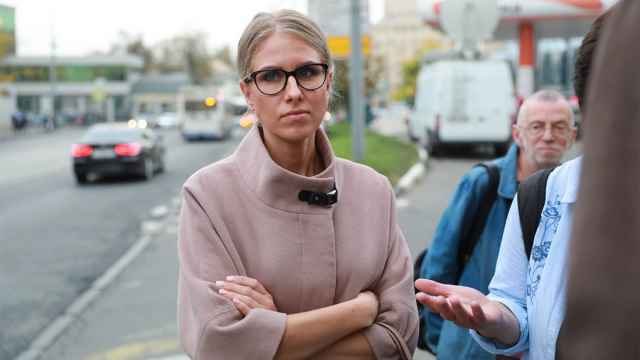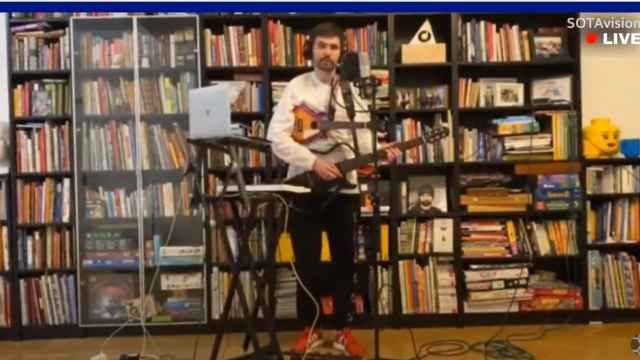Mikhail Khodorkovsky, the wealthiest of Russian President Vladimir Putin’s Russian opponents, gathered Russian intellectuals over the weekend for a conference in Prague and presented a vision of “the Russia of his dreams.” It looked a lot like Putin’s vision.
Russia lacks a strong opposition to the Putin regime for numerous reasons: The regime’s despicable pressure tactics, its silencing of media, its use of social network trolls, a shortage of charismatic leaders willing to take on the Putin machine, a general atmosphere of mistrust that prevents people from following anyone who’d like to lead. Regimes, however, have been toppled despite bigger obstacles than these.
As a Russian, I find it more depressing that no one appears to have a compelling plan for the post-Putin future. Whether or not the next change of power in Russia is peaceful or violent, the “beautiful Russia of the future,” as prominent Putin foe Alexey Navalny has dubbed it, or “the Russia of our dreams,” the formula Khodorkovsky prefers, it isn’t being defined as a clear set of policies that are different from Putin’s.
Khodorkovsky dared to disagree with Putin on policy matters, and ended up behind bars for a decade on dubious charges, his oil company in tatters and much of his fortune lost. He's one of the few people with both the means and the credibility to fund anti-Putin thought and action. In Prague, he started off the discussion of Russia’s future by saying he was a believer in a strong central government. “Self-government,” he said, “needs to be learned like one learns to drive a car. Long and thoughtfully. And meanwhile, it’s best to have a driver.”
Khodorkovsky went on to describe his priorities: big business over small and medium-sized firms, because it means higher productivity and efficiency; further urbanization; a strong, technologically independent military with high-precision weapons; trying to win and dominate external markets and “state protectionism within reasonable limits”; a parliament where legislators represent Russia’s diverse regions rather than political parties.
The former oil tycoon’s problems with the current regime have to do with how Putin approached a similar set of priorities. The Russian ruler, he says, has strengthened government by trampling the rule of law, bet on big business but allowed corruption and crony capitalism to flourish, sped up urbanization but made Moscow the country’s only attractive mega-city that vacuums up people and resources from other parts of the country, set out to build a modern military but lost technological momentum by alienating potential allies in the West.
“Giving up land to China, negotiating to hand over islands to Japan — these are the pseudo-patriotic undertakings of the government as it tries to win favor with eastern neighbors, having destroyed relations in the West,” Khodorkovsky said.
As I read this, I couldn’t overcome the feeling that Putin was being criticized for fumbling great-power policies, for incompetence and corruption rather than wrongheadedness. This is a different approach from that of the other visible Putin critic, Navalny, who’d written a platform for his presidential run earlier this year that was disallowed by the Kremlin because of Navalny’s conviction on trumped-up charges.
That document was a thoroughly populist program that called for big tax cuts, unrealistic spending increases, a utopian pension system based on putting all government assets in a fund that would provide the bulk of pension payments, and an all-professional military of 500,000 service members each making $3,000 a month — about as much as a U.S. staff sergeant makes. It called for “ending aggression against Ukraine” without handing back Crimea (instead, it called for “legitimately solving Crimea’s issue [sic] in favor of the local population,” whatever that might mean).
In Navalny’s Russia, high-technology business would thrive simply because it would be a nicer country with low taxes and little bureaucracy, so the brain drain would stop. Strict immigration limits, which Navalny advocates, wouldn’t hurt economic growth.
None of this sounded like Putin’s Russia — but the vision appeared to defy the force of gravity. It looked like an attempt to draw a country from scratch rather than start with today’s rather grim reality.
Neither better execution, as implied by Khodorkovsky’s vision, nor dreaming big while avoiding specifics, would turn the Russia Putin has built into something different — certainly not into a free, prosperous, economically competitive nation. Khodorkovsky’s version would probably look somewhat like the illiberal democracies of today’s eastern Europe, which would hardly turn it into an ally for the West or create much hope for the monopolized, overcentralized economy. Navalny’s platform looks so naive I’m unsure what he would actually do if he ended up in the Kremlin.
When I think about Russia after Putin, I’m looking for a credible vision that doesn’t replicate Putin’s delusional great-power ambitions. The Russia of my dreams is a country working on the goal of membership in the European Union. It’s a country following a difficult but well-defined path taken by other post-Communist countries and gradually accepting the standards that the U.K. has tried and failed to reject with Brexit.
This Russia doesn’t mind giving up some of its sovereignty for permanent peace, a realistic shot at economic prosperity, and a place in a security architecture not based on isolation and constant tension. It’s a country for which holding on to every bit of its vast territory, plus whatever it recently has grabbed, isn’t an overriding goal. It prefers to study rather than glorify its past. And, after a thorough audit of its often unreasonable laws, it slowly builds real rather than imitative institutions, both from the bottom up and from the top down.
Until at least 2009, a majority of Russians said that European Union membership should be the country’s goal. Now, only a quarter do, while 60 percent are against it. So opposition leaders appear to have given up on a European future for Russia, accepting that Putin’s propaganda of exceptionalism and resentment has won.
That doesn’t make me optimistic about Russia going forward. Unless the country retraces some of the steps Putin took down a messianic, solitary path and reimagines itself as part of a bigger whole, it’s doomed to keep falling behind economically, demographically and intellectually.
Leonid Bershidsky is a Bloomberg Opinion columnist covering European politics and business. He was the founding editor of the Russian business daily Vedomosti and founded the opinion website Slon.ru. The views expressed in opinion pieces do not necessarily reflect the editorial position of The Moscow Times.
A Message from The Moscow Times:
Dear readers,
We are facing unprecedented challenges. Russia's Prosecutor General's Office has designated The Moscow Times as an "undesirable" organization, criminalizing our work and putting our staff at risk of prosecution. This follows our earlier unjust labeling as a "foreign agent."
These actions are direct attempts to silence independent journalism in Russia. The authorities claim our work "discredits the decisions of the Russian leadership." We see things differently: we strive to provide accurate, unbiased reporting on Russia.
We, the journalists of The Moscow Times, refuse to be silenced. But to continue our work, we need your help.
Your support, no matter how small, makes a world of difference. If you can, please support us monthly starting from just $2. It's quick to set up, and every contribution makes a significant impact.
By supporting The Moscow Times, you're defending open, independent journalism in the face of repression. Thank you for standing with us.
Remind me later.



